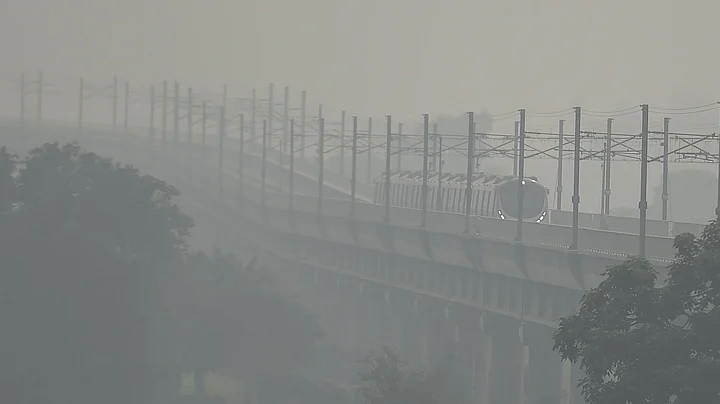New Delhi has been ranked as the world’s most polluted capital, said a new report by IQAir, a Swiss group that measures air quality.
According to the report, India is home to 22 of the world’s 30 most polluted cities, with Delhi being the most polluted capital in the world.
However, the report revealed that Delhi’s air quality increased by 15 percent from 2019 to 2020 during the lockdown period.
All Indian cities showed air quality improvements in 2020, owing to the pandemic-induced lockdown. Meanwhile, 63 percent Indian cities saw improvements compared to 2019, said the 2020 World Air Quality Report on Tuesday that was based on the PM2.5 data from 106 countries.
Twenty-one other cities includes Ghaziabad, Bulandshahr, Bisrakh Jalalpur, Noida, Greater Noida, Kanpur, Lucknow, Meerut, Agra and Muzaffarnagar in Uttar Pradesh, Bhiwadi in Rajasthan, Faridabad, Jind, Hisar, Fatehabad, Bandhwari, Gurugram, Yamuna Nagar, Rohtak and Dharuhera in Haryana, and Muzaffarpur in Bihar.
Xinjiang in China Most Polluted City
The report revealed that Xinjiang in China was the world’s most polluted city, followed by Ghaziabad in the second spot and then Bulandshahr, Bisrakh Jalalpur, Noida, Greater Noida, Kanpur, Lucknow and Bhiwadi.
The report by IQAir said that in 2020, 86 percent of the cities in China experienced cleaner air than the previous year. Despite that, Chinese residents were still exposed to PM2.5 levels more than three times the World Health Organization’s (WHO) safe level.
South Asia is one of the most polluted regions of the world with Bangladesh, India and Pakistan sharing 42 of the 50 most polluted cities worldwide.
Air Quality Improved Everywhere Amid COVID-19 Restrictions
The report stated that climate change continues to affect air quality. The year 2020 was tied with 2016 as the hottest year on record. Wildfires and sandstorms, fueled by the warming climate, led to extremely high pollution levels in California, South America, Siberia and Australia.
The highest levels of PM2.5 pollution was found in eastern and southern Europe, with Bosnia & Herzegovina, North Macedonia and Bulgaria taking the lead.
“The year 2020 brought an unexpected dip in air pollution. In 2021, we will likely see an increase in air pollution due to human activity, again,” said Frank Hammes, CEO of IQAir.
“We hope this report will highlight that urgent action is both possible and necessary to combat air pollution, which remains the world’s greatest environmental health threat,” he added.
“Many parts of the world experienced unprecedented, but short-lived improvements in air quality in 2020, as restrictions related to the COVID-19 pandemic caused a steep drop in fossil fuel consumption,” said Lauri Myllyvirta, lead analyst at the Centre for Research on Energy and Clean Air (CREA), who also contributed to the report.
“This improved air quality meant tens of thousands of avoided deaths from air pollution. By transitioning to clean energy and clean transport, we can realize the same improvements in a sustained way,” he added.
(With Inputs from IANS)
(At The Quint, we question everything. Play an active role in shaping our journalism by becoming a member today.)
